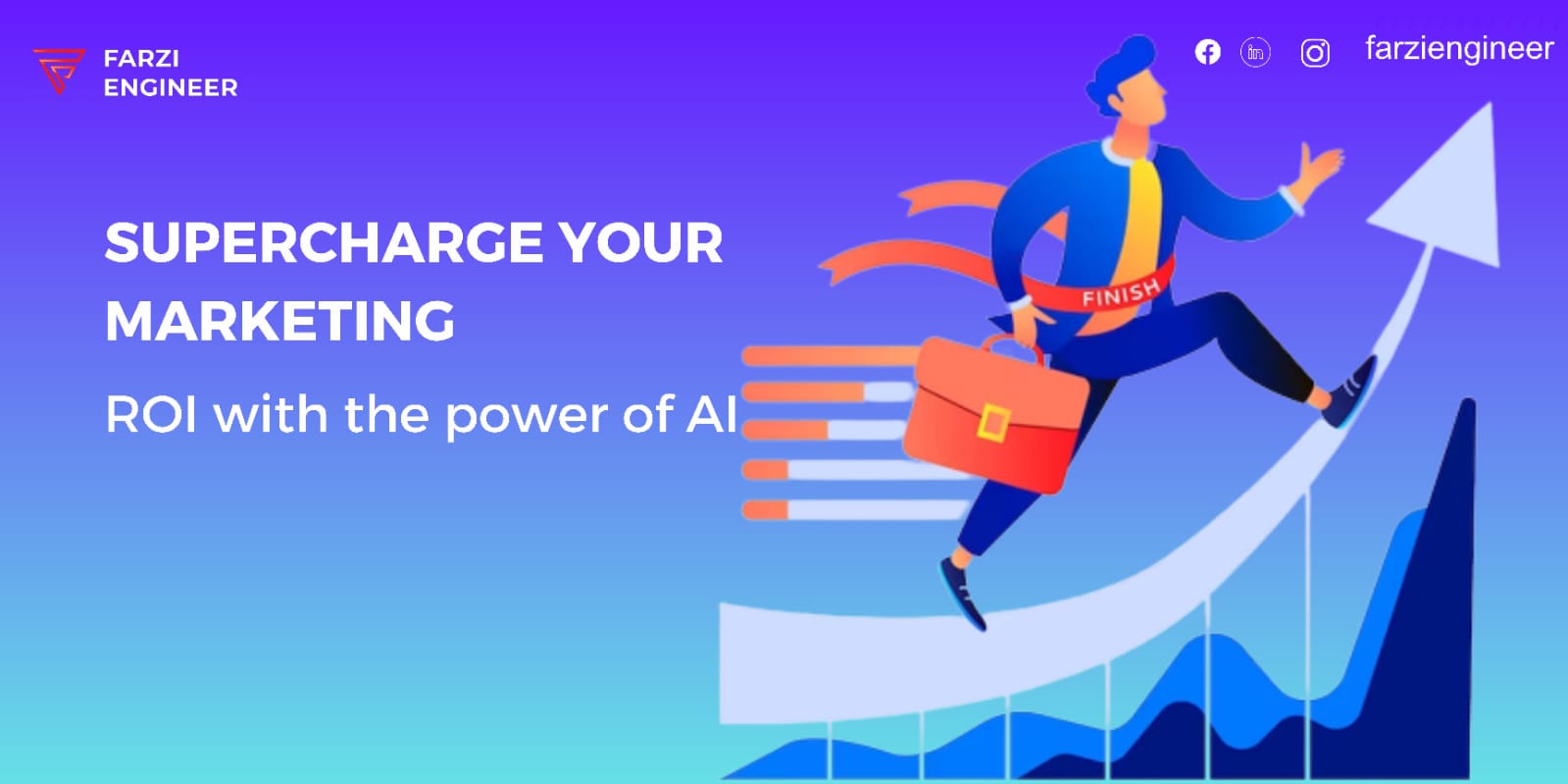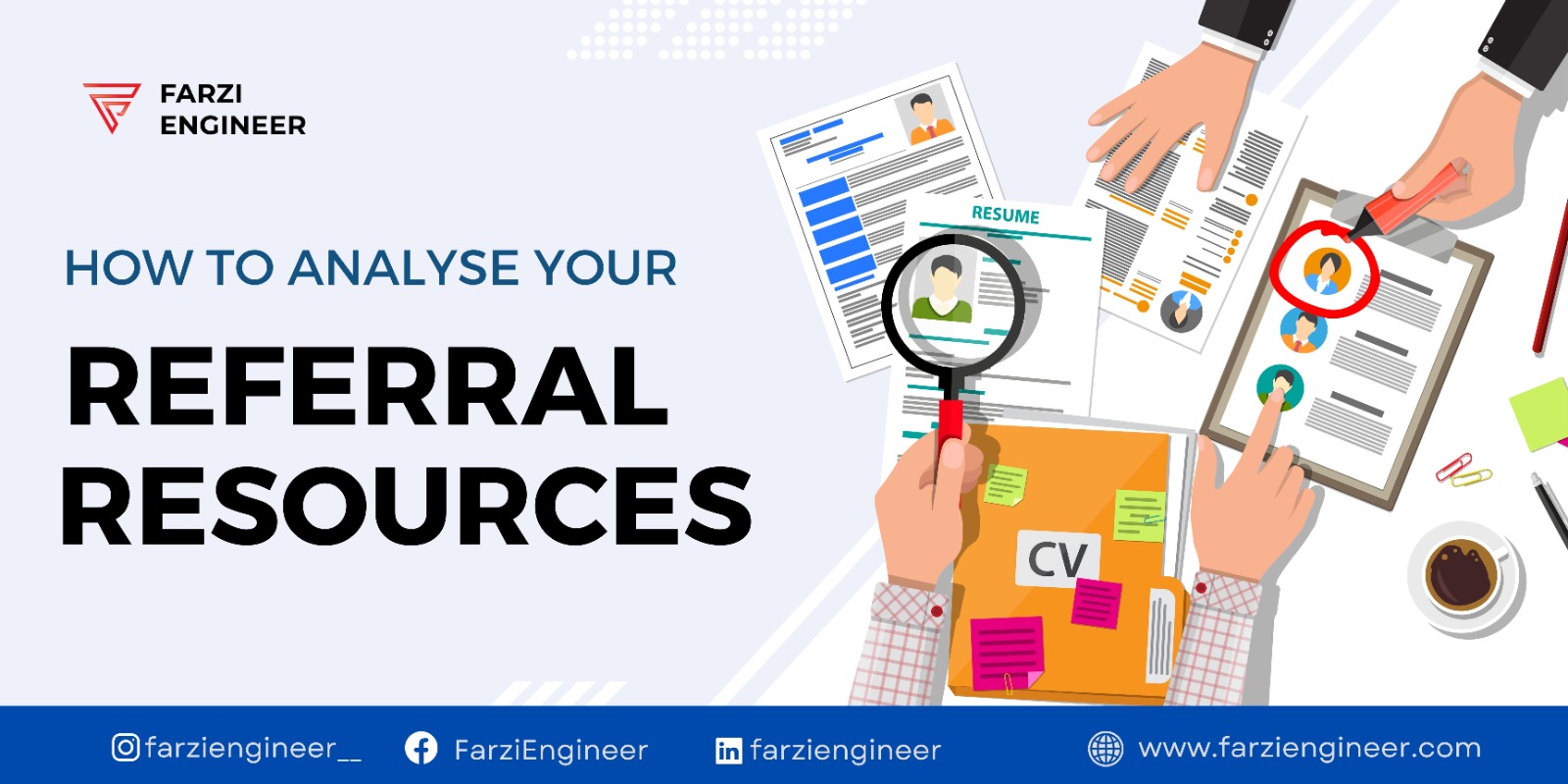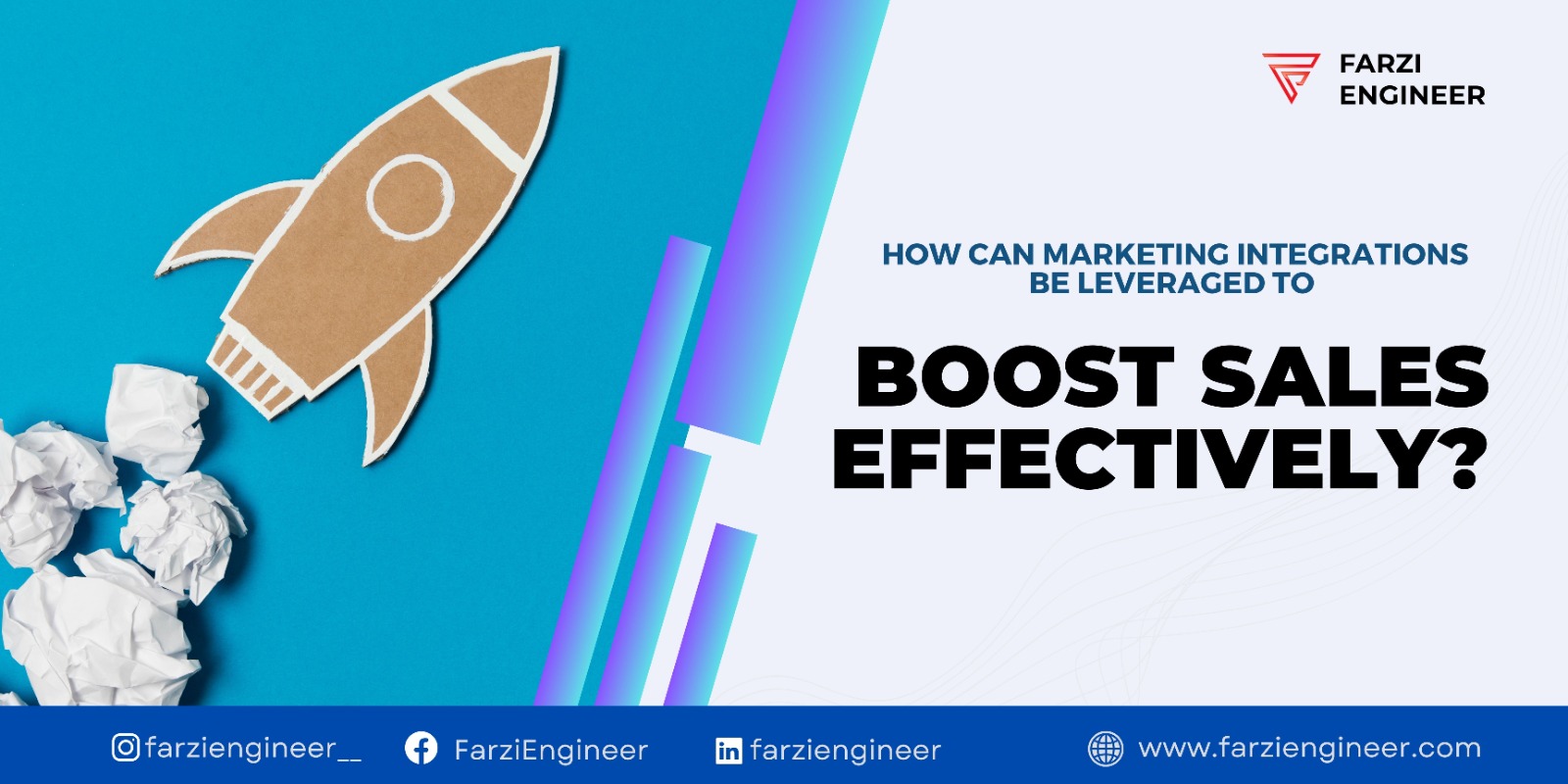Artificial Intelligence (AI) has become one of the hottest buzzwords in the marketing world. With its ability to process large amounts of data and perform complex tasks, AI has the potential to revolutionize the way businesses connect with their target audience and increase their return on investment (ROI).
One area where AI is making a significant impact is customer segmentation. Traditionally, marketers would categorize customers based on demographic information such as age, gender, and location.
However, AI can go beyond these basic demographics and analyze customers’ behaviors, interests, and purchase patterns to create more accurate and targeted segments. This allows businesses to tailor their marketing efforts specifically to the needs and preferences of each segment, resulting in improved engagement and ROI.
AI-powered chatbots and virtual assistants have transformed customer service and support. These automated tools can provide personalized recommendations, answer inquiries, and resolve customer issues in real-time, leading to higher customer satisfaction and increased sales. AI chatbots can also collect valuable data about customer interactions, enabling businesses to understand customer pain points and identify areas for improvement.
To fully access AI’s potential, we must push the boundaries of current technological capabilities and address several key challenges.
Benefits of AI in Marketing ROI
One of the main benefits of AI in marketing is its impact on Return on Investment (ROI). By utilizing AI, companies can optimize their marketing efforts to achieve higher ROI and ultimately increase their bottom line. Let’s explore some of the key advantages AI brings to marketing ROI.
- Enhanced Data Analysis
AI has the capability to process and analyze vast amounts of data in real time. By feeding AI algorithms with data from various sources like social media, customer behavior, and market trends, businesses can gain valuable insights into their target audience’s preferences, interests, and needs. This allows marketers to make data-driven decisions and create more personalized and relevant campaigns, resulting in higher ROI.
- Predictive Analytics
AI-powered predictive analytics can forecast future consumer behavior and trends. By analyzing historical data, AI algorithms can identify patterns and make accurate predictions about customer preferences, buying habits, and responses to marketing campaigns. This enables marketers to target the right audience at the right time with the right message, ultimately increasing conversion rates and ROI.
- Improved Customer Experience
AI can significantly enhance the customer experience by providing personalized recommendations, offers, and support. With AI-powered chatbots, businesses can efficiently respond to customer inquiries 24/7, ensuring prompt and relevant assistance. By understanding customer needs and preferences, AI enables marketers to create personalized experiences that boost customer satisfaction and loyalty, leading to increased sales and ROI.
- Automation of Tedious Tasks
AI eliminates the need for manual labor in repetitive marketing tasks such as data entry, analytics, and reporting. By automating these processes, marketers can free up time to focus on more strategic initiatives. AI can also automate email marketing campaigns, social media scheduling, and content distribution, ensuring consistent, timely, and targeted messaging to reach the right audience. As a result, businesses can achieve higher efficiency and productivity, leading to improved ROI.
- Fraud Detection and Prevention.
AI-powered algorithms can effectively detect fraudulent activities, such as click fraud and identity theft, by analyzing large amounts of data and identifying patterns that are indicators of fraud. These algorithms use machine learning techniques to continuously learn and adapt to new fraud tactics, making them highly effective in preventing fraudulent activities.
For example, if a high number of clicks originate from the same IP address or if clicks are occurring at an unnatural frequency, these may be clear indicators of click fraud.
Case Studies: How AI Transformed Marketing ROI
AI has transformed marketing efforts and significantly improved return on investment (ROI). Several case studies have demonstrated the positive impact of AI on marketing ROI, highlighting its potential to drive growth and boost business performance.
One notable case study is from Sephora, a leading beauty retailer. Sephora successfully implemented an AI-powered recommendation engine that provided personalized product suggestions to its customers. By analyzing customers’ browsing and purchase history, along with their feedback, the AI system was able to understand individual preferences and deliver highly relevant recommendations. This AI-driven approach resulted in an impressive 137% increase in conversion rates, leading to a significant improvement in marketing ROI for Sephora.
Another compelling case study is Netflix. The streaming giant leveraged AI to enhance its marketing efforts and improve customer engagement. By analyzing user behavior and preferences, Netflix’s AI algorithm suggested personalized movie and TV show recommendations, leading to longer viewing sessions and reduced churn rates. As a result, Netflix experienced a 75% increase in user retention and a remarkable 130% increase in customer lifetime value, ultimately boosting their marketing ROI.
Furthermore, Coca-Cola’s deployment of AI-based marketing solutions is worthy of mention. Through AI-powered data analysis, Coca-Cola was able to understand consumer sentiments, preferences, and trends on social media. This valuable insight allowed them to create highly targeted marketing campaigns that resonated with their audience. The AI-driven campaigns resulted in a 32% increase in sales and a 24% improvement in marketing ROI for Coca-Cola.
How AI Technology Can Drive Marketing Success?
In recent years, the rise of artificial intelligence (AI) technology has been transformative across various industries, and marketing is no exception. AI has revolutionized the way businesses approach marketing strategies, enabling them to drive significant success and gain a competitive edge in the market.
One of the most significant advantages of AI in marketing is its ability to personalize and target content efficiently. Machine learning algorithms can analyze vast amounts of data, including customer preferences, behaviors, and purchasing patterns, to deliver highly personalized content to individual users. This level of personalization ensures that consumers are presented with relevant and engaging content, increasing the chances of conversions and customer loyalty. AI provides data-driven insights.
With AI technology, marketers can also optimize their advertising campaigns by targeting specific audiences more effectively. AI tools can analyze customer data to identify patterns and insights, helping marketers allocate their advertising budget in the most strategic way possible. By targeting the right audience at the right time, companies can maximize their marketing efforts, creating more impactful campaigns and ultimately driving higher conversion rates.
Harnessing the Power of AI to Boost Marketing Returns
In today’s digital landscape, the success of a business heavily relies on effective marketing strategies. With the rise of artificial intelligence (AI), marketers now have a powerful tool at their disposal to improve their campaigns and ultimately drive better returns on investment.
AI technology has the potential to revolutionize the way businesses market their products or services by enabling them to make data-driven decisions, personalize customer experiences, and automate tasks.
Data is the backbone of any successful marketing campaign, and AI can analyze vast amounts of data in a fraction of the time it would take a human. By leveraging AI algorithms, marketers gain invaluable insights into customer behavior, preferences, and patterns. With this knowledge, they can create highly targeted and personalized campaigns that resonate with their audience.
AI assists marketers in identifying the most effective platforms to reach their target market, optimizing ad placements, and even predicting future outcomes based on historical data.
AI helps streamline marketing operations by automating repetitive and time-consuming tasks. This frees up marketers’ time, allowing them to focus on more creative and strategic aspects of their campaigns.
AI-powered chatbots, for instance, can engage with customers in real-time, answer queries, and provide personalized recommendations, all while maintaining a consistent brand voice.
Key Steps to Utilize AI for Increased Marketing ROI
In the ever-evolving landscape of marketing, the integration of artificial intelligence (AI) has emerged as a game-changer for optimizing strategies and enhancing Return on Investment (ROI). AI’s ability to process vast amounts of data, identify patterns, and make real-time decisions provides marketers with unparalleled insights and opportunities. To harness the power of AI for increased marketing ROI, consider the following key steps:
- Data Collection and Integration:
Start by collecting and centralizing your data from various sources, including customer interactions, website analytics, social media, and sales records. AI-driven tools can aggregate and harmonize this data, providing a holistic view of your audience’s behavior and preferences.
- Audience Segmentation and Personalization:
Utilize AI algorithms to segment your audience based on demographics, behavior, and preferences. This allows you to tailor your marketing messages, offers, and content to each segment, thereby increasing engagement and conversion rates.
- Predictive Analytics:
Leverage AI-powered predictive analytics to forecast customer behaviors, such as purchase intent, churn likelihood, or response rates to specific campaigns. These insights enable you to proactively tailor your strategies and allocate resources effectively.
- Content Optimization:
AI can analyze content performance data and user engagement to identify patterns that resonate with your target audience. Use this information to optimize your content, from email subject lines to social media posts, ensuring higher engagement and conversion rates.
- Marketing Automation:
Implement AI-driven marketing automation platforms to streamline repetitive tasks such as email campaigns, social media posting, and lead nurturing. This frees up your team to focus on strategic initiatives while ensuring consistent and timely communication with your audience.
- Chatbots and Virtual Assistants:
Integrate AI-powered chatbots and virtual assistants on your website and social media platforms. These tools provide instant responses to customer inquiries, enhancing user experience, and driving engagement while reducing the workload on your customer support team.
- Dynamic Pricing Strategies:
AI algorithms can analyze market trends, competitor pricing, and customer behaviors to recommend optimal pricing strategies. Dynamic pricing models can help maximize revenue while remaining competitive.
The Future of Marketing ROI: AI as the Game Changer
As the landscape of marketing continues to evolve, it is becoming increasingly clear that artificial intelligence (AI) will be the game changer that shapes the future of ROI.
AI brings an abundance of unparalleled benefits to the field of marketing. One of the most significant advantages is the ability to collect vast amounts of data and analyze it in real time, enabling marketers to make informed decisions quickly. Traditional marketing campaigns often relied on guesswork or historical data, but AI allows for personalized and precise targeting. By studying customer behavior patterns and preferences, AI can deliver tailored messages to specific individuals or demographics, making marketing efforts more efficient and effective.
AI-powered tools like sentiment analysis also enable marketers to gauge customer sentiment and adjust their messaging accordingly, leading to more impactful campaigns.
In conclusion, the future of marketing ROI is primed for a revolutionary shift with the integration of Artificial Intelligence (AI). This transformative technology has the potential to significantly enhance marketers’ ability to analyze and optimize campaigns, leading to improved return on investment.
By leveraging AI, marketers can tap into valuable insights, understand customer behavior patterns, make data-driven decisions, and drive revenue growth.





